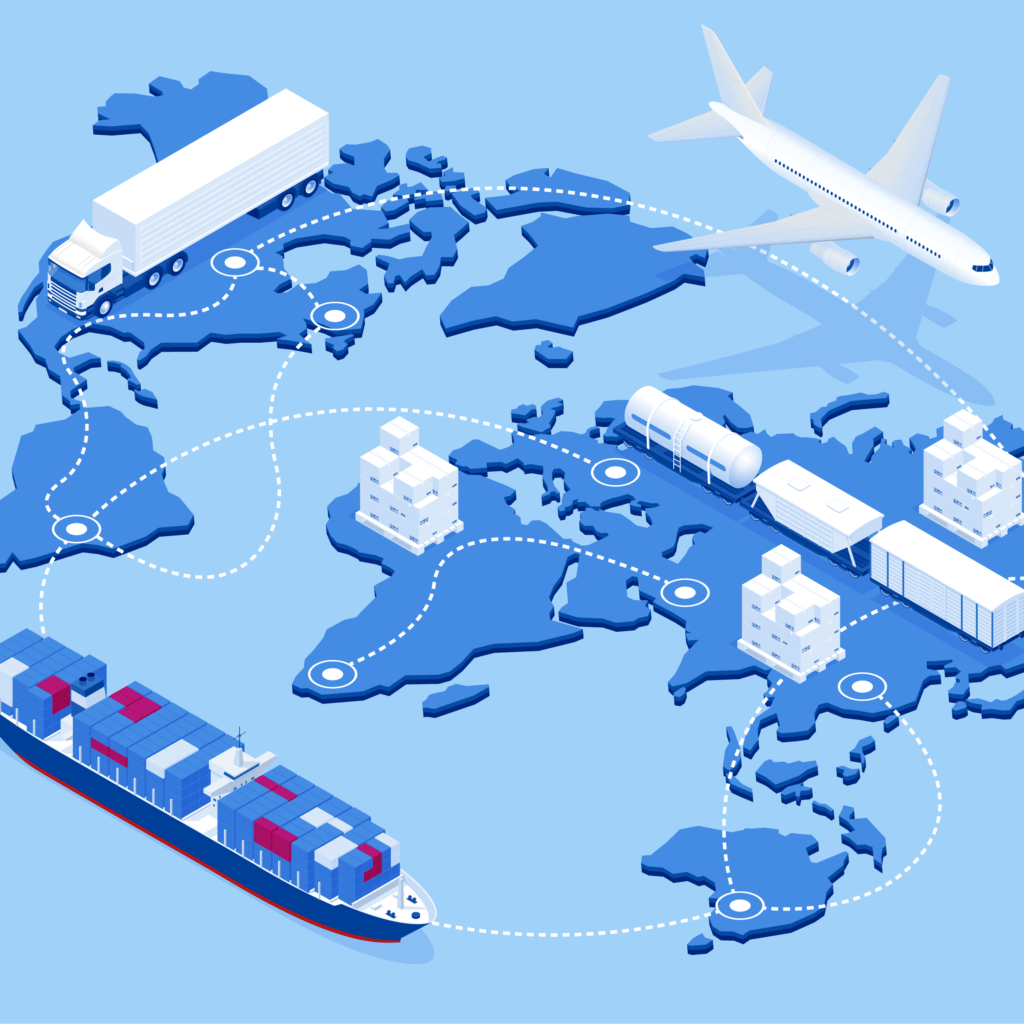The importance of transport in the logistics chain: In the supply chain, transport plays a fundamental role in the efficient movement of products from the point of production to the point of consumption. This article highlights the crucial importance of transport in the supply chain and explains how it contributes to the success of business operations. From managing delivery times to ensuring customer satisfaction, find out why transport is a key part of the supply chain.
Goods flow
Transport is responsible for the physical movement of goods throughout the supply chain. It transports products from suppliers to distribution centres, then to shops or directly to customers. An efficient flow of goods ensures that products are available in the right place at the right time, avoiding stock-outs and delivery delays. This helps to maintain business continuity and respond satisfactorily to customer demands.
Cost optimisation
Transport also plays a key role in optimising supply chain costs. By choosing appropriate modes of transport, optimising routes and consolidating shipments, companies can reduce transport costs, including fuel, tolls and associated labour costs. In addition, effective management of transport logistics can minimise storage and stock management costs, helping to improve overall business profitability.
Delivery times and customer satisfaction
Transport is a key factor in meeting delivery deadlines and satisfying customer expectations. Short, reliable delivery times are essential for customer loyalty and satisfaction. Well-planned and co-ordinated transport enables products to be delivered on time, strengthening customer confidence in the company. Speed and reliability of delivery are key differentiators in a competitive market, and transport plays a central role in this.
Flexibility and adaptation to needs
Transport offers the flexibility needed to respond to fluctuations in demand and adapt to changes in the market. The use of different modes of transport, such as road, rail, sea or air, means that the most appropriate solution can be chosen according to product characteristics, distance and time constraints. This flexibility also makes it easier to manage seasonal peaks, special promotions and changes in customer location, guaranteeing greater responsiveness and adaptability.
Transport plays an essential role in the supply chain, ensuring the efficient routing of products. It ensures the continuous flow of goods, helps to optimise costs, meet delivery deadlines and satisfy customer expectations, while offering the flexibility needed to adapt to changes in the market. The importance of transport in the supply chain cannot be underestimated, as it is the crucial link that connects all the players in the supply chain and ensures the success of commercial operations.
Find other interesting articles on our blog or on our LinkedIn page!


